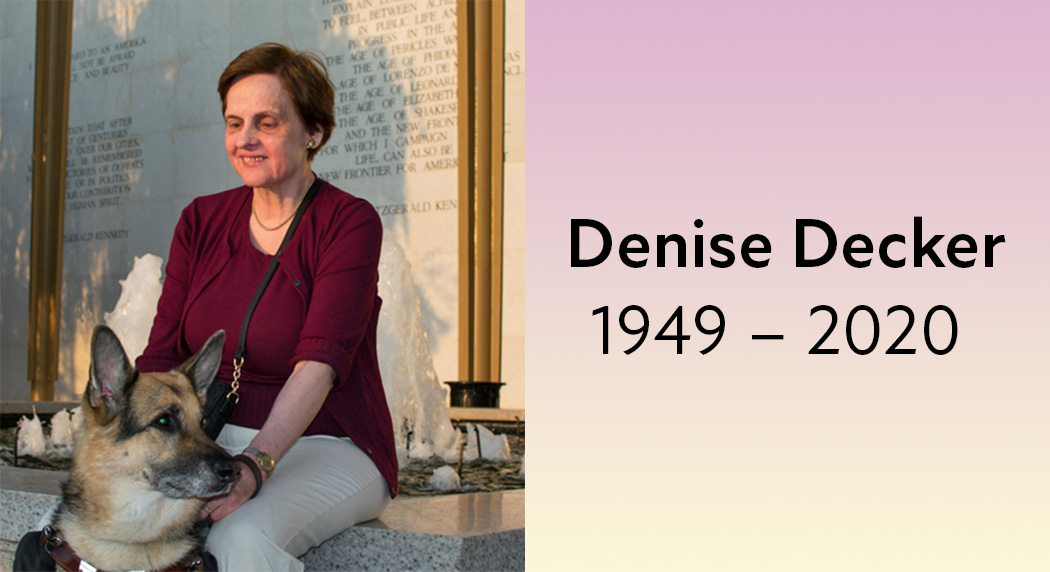
Denise was a member of the American Council of the Blind and its Audio Description Project steering committee. She chaired the Project’s Performing Arts/Museums and Parks subcommittee. Just a week before she passed, she was crestfallen at having to miss a subcommittee conference call: at such a difficult time, Denise was thinking of others, of her responsibility to her colleagues, of her commitment to serve the community of audio description devotees.
Early in 2020, she demonstrated her eloquence on the topic in an interview on National Public Radio at their studios in Washington. She was asked about the audio description developed in the U.K. for last year’s Best Picture Academy Award winner, the subtitled “Parasite.” Denise responded with thoughtful insight, noting how the skilled, succinct use of language and expert vocal technique can provide more meaningful access to culture for people who are blind. Her tact and yet her firm defense of the importance of access has resulted in significant improvements in the accessibility of the 9/11 Museum in New York and myriad national park visitor centers around the country.
Everyone who knew Denise knew her gentle, unassuming soul and her gracious way with others, always helping them to feel knowledgeable and appreciated. And most of all, she was a champion—a valiant advocate for the rights of people with disabilities. She knew that disability exists only to the extent that the individual and the society at large acknowledges the individual’s abilities and provides appropriate accommodations. With the inclusion of audio description at a performance or in a museum or at a national park site, a person who is blind is no longer disabled—he/she has access comparable to the sighted person who wants to know and be a part of our culture. Denise exemplified the notion that there is no good reason why a person with a physical disability must also be culturally disadvantaged.
She is greatly missed by all who had the opportunity to be in her embrace.